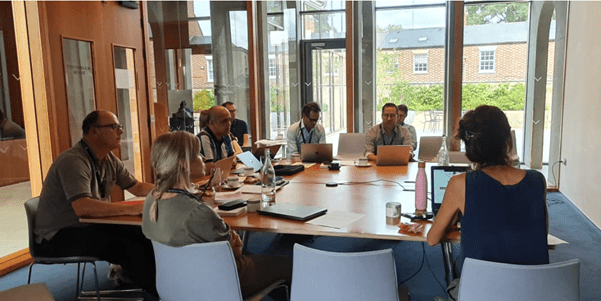Funder
Joint Global Health Trials
Principal Investigators
Dr David Meya
Dr Rovina Ruslami
Dr Darma Imran
Associate Professor Raph Hamers
Locations
Jakarta and Bandung, Indonesia
Uganda, South Africa
Duration
June 2019 – May 2023
Status
Trial recruitment is ongoing since January 2022
Tuberculous meningitis (TBM), the most severe form of tuberculosis (TB), results in death or neurological disability in >50% of those affected, despite current recommended four-drug combination therapy. However, these recommendations are based on data from pulmonary TB and there is little data to support this regimen in TBM.
Due to variable TB drug penetration across the blood-brain-barrier and blood-cerebrospinal fluid (CSF) barrier, optimal treatment regimens for pulmonary TB may not be the most effective option for TBM. Recent evidence suggests that high dose rifampicin administered intravenously or orally enhances central nervous system penetration and may strongly reduce mortality to TBM.
We hypothesize among persons with TBM that higher dose rifampicin (~35 mg/kg), delivered orally daily for 8 weeks will improve survival compared with standard dose rifampicin (in combination with standard dose isoniazid, pyrazinamide, and ethambutol), without an excess of adverse events.

The primary objective is to determine if high dose rifampicin, delivered orally at ~35 mg/kg/day for 8 weeks, is safe and improves 6-month survival compared to standard of care (rifampicin 10 mg/kg/day) for patients with TBM.
Secondary objectives are to compare the high dose rifampicin regimen to the standard of care regimen for 12-month survival; neurological disability and functional outcomes from TBM; safety and tolerability; hospital outcomes related to TBM; subsequent neurologic deterioration; management of drug-induced liver injury.
Tertiary objectives are to describe the pharmacokinetics (PK) of high dose rifampicin in plasma and CSF, assess predictors of exposure to rifampicin in plasma and CSF, assess PK-PD relationships also considering exposures to the other first-line TB drugs and ART in HIV-infected patients, and determine the minimally desired rifampicin exposure for optimal treatment of TBM.